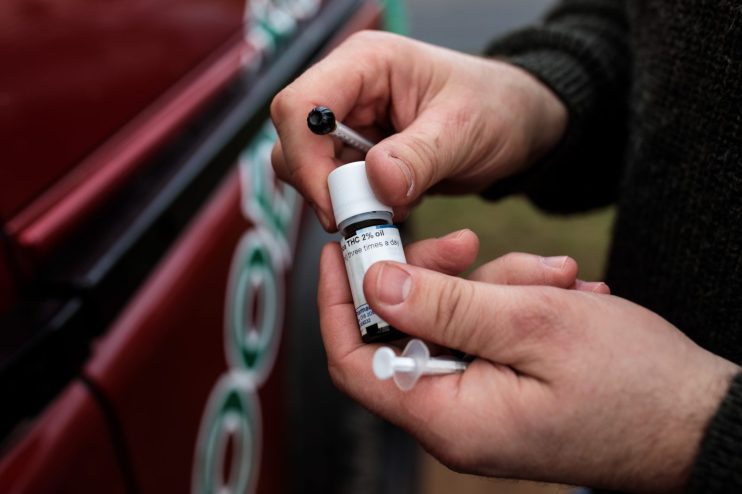Two years on from the law change, desperate families are still denied access to medical cannabis

Severe epilepsy is a cruel condition, one that forces parents to endure the desperation of trying to help an innocent child whose life will only ever be far from normal.
That’s why, after years of hard-fought and determined campaigning, a change in legislation exactly two years ago today brought relief to thousands of families across the nation, as medical cannabis finally became legal to prescribe on the NHS.
This apparent victory gave so many of us hope. We genuinely believed that every child and adult who had tried a reasonable number of treatments would get the chance to use medical cannabis.
But two years on from the change in law, the reality is nothing of the sort. Just three prescriptions have been granted since. The disregard shown to those who need access to the treatments in the years that have followed is a national disgrace.
Though technically legal, medical cannabis is still incredibly hard to get without an expensive private prescription. NHS doctors are reluctant to prescribe this medicine, as they lack clear clinical guidance. The funding issues that plague the health service are another barrier to access.
The dire lack of accessibility has been exacerbated during months of the pandemic, where all too many have felt the financial strain. So many families still have to foot the bill — costs of up to £2,000 a month — in order to access these life-changing drugs.
Public sentiment in Britain increasingly backs such treatments, and there is a growing amount of evidence in favour of medical cannabis for a range of conditions, with severe epilepsy high on the list. Yet the political discourse surrounding medical cannabis remains largely unchanged since the law was updated.
So much more needs to be done if we are to accomplish meaningful change and improve the lives of our most vulnerable children.
In a post-pandemic economy, we have a moral duty not to neglect the needs of people with serious and chronic conditions. A timely and early intervention, ensuring the right medicine is accessible to all who need it, is an imperative.
Right now, neither the government nor medical community appear to agree on who should bear responsibility for this state of paralysis. Restrictive guidance from NICE and the BPNA, combined with continued reluctance from the government and the health service to make the process more straightforward, means that not one new NHS prescription for medical cannabis has been written in the last two years.
Of course, clinicians have patient safety at the heart of their decision making, but they also have an obligation to provide their patients with the best treatments available. And there is an abundance of evidence to suggest that in many cases, that treatment is medical cannabis. This drug can not only improve quality of life, but crucially keep patients — especially children — out of hospital. It is astonishing that there is not more urgency to provide access to a treatment that could save the NHS precious money and resources.
The UK should be a world leader in the medical cannabis industry. Medical cannabis is grown here, processed, and sold all over the world. Yet British patients cannot access it. The government appears to favour the profits to be gained from lucrative exports rather than addressing the desperate demand from its own citizens.
Our politicians would do well to show some empathy and understanding of what desperate families are going through as life-changing medication is denied to them.
They have wasted the last two years. They cannot be allowed to waste one more.
Main image credit: Getty